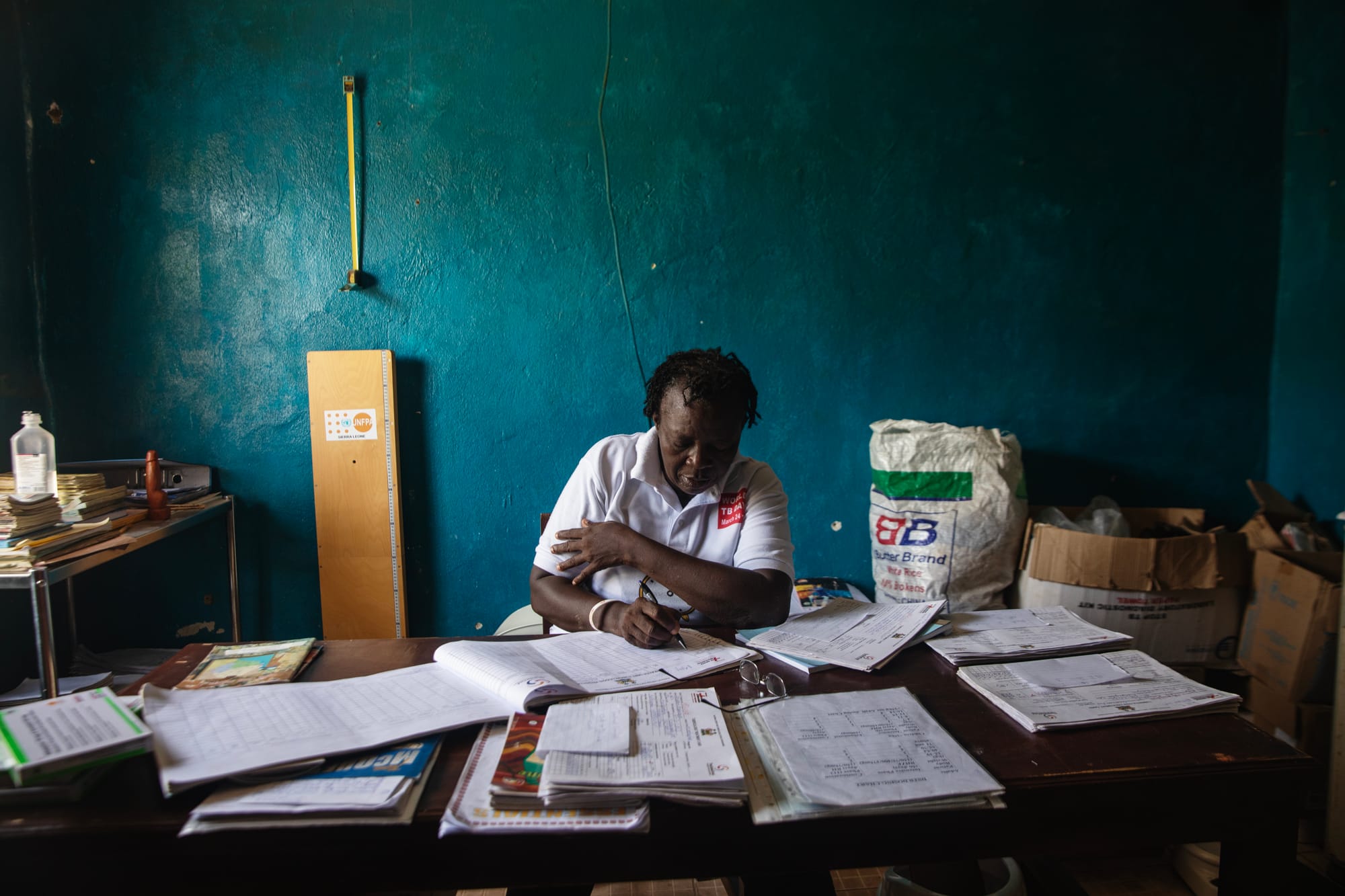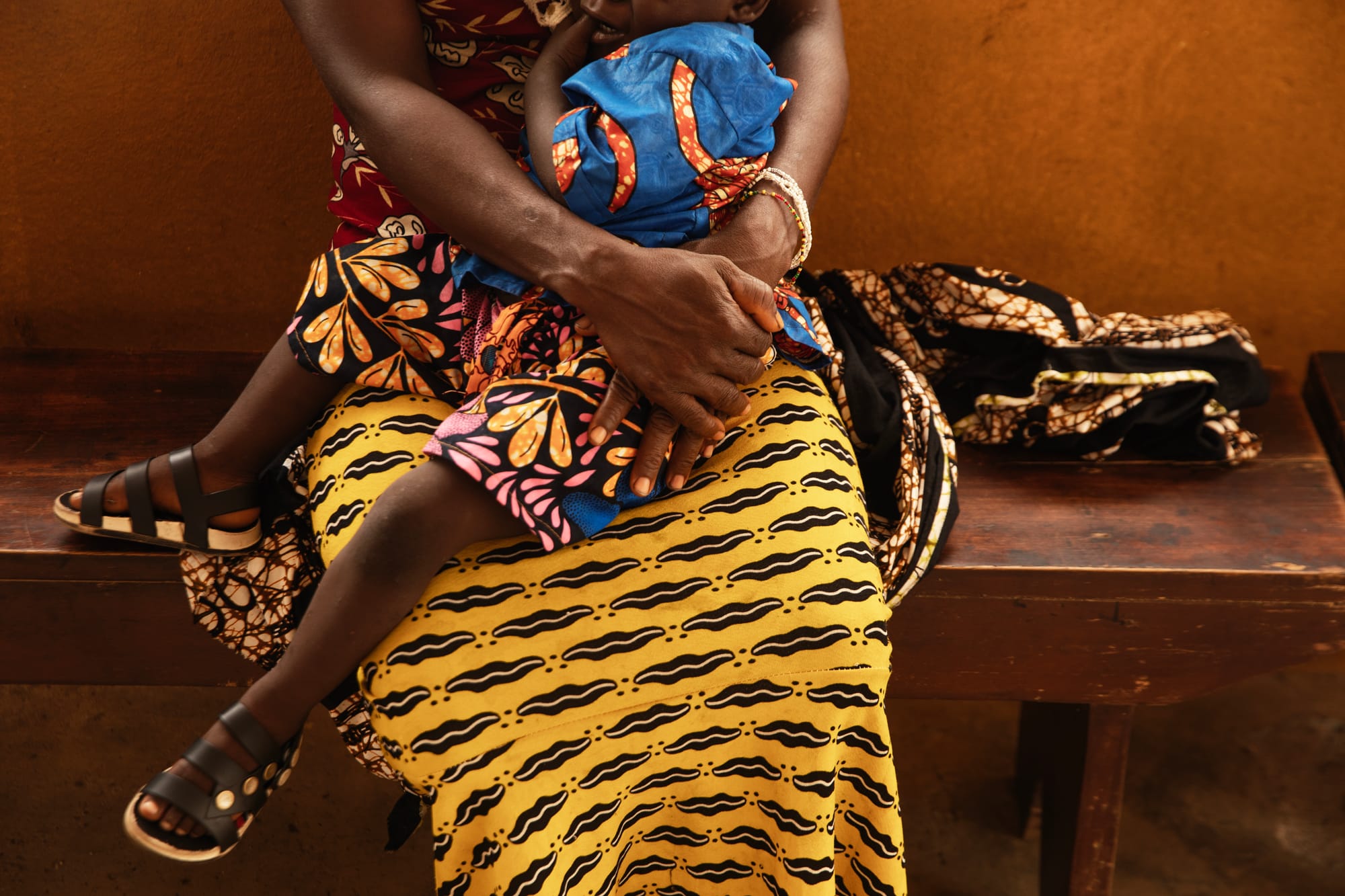Stop asking me why I care about tuberculosis
The pragmatic case for giving a sh*t about the world’s deadliest disease.

[Editor’s note: In May of 2023, I was lucky enough to travel with Nicholas Kristof of The New York Times on his annual win-a-trip contest for students (I won the trip back in 2020, but then a world-altering pandemic happened.) We went to Sierra Leone, São Tomé and Príncipe, and Ghana. Despite extensive research and pre-interviews, nothing could have prepared me for the experience — the feeling of reporting on the ground in an unfamiliar place with little frame of reference. I ended up seeking out stories on familiar topics, like queerness, young people, and infectious disease. This story is based on my reporting from that trip.]
I’ve gotten very used to people asking me why I care about certain topics. If you take a look at my recent stories, “eclectic” would be an accurate, if generous, term to describe my interests. Plant root biology, AI chatbot data annotation, wacky video game subplots — if you can find a through line for these articles, please let me know what it is. But when I returned from a reporting trip to West Africa and started pitching around a story, there was one question I hadn’t thought to preemptively answer: Why do you care so much about tuberculosis? Sure, I have a canned response ready for when people question my long-standing fascination with figure skating’s International Judging System, but I was not prepared to address this one. My impulse was to fire back with a sobering statistic: TB is the number one infectious disease killer globally. Even though the disease is preventable and curable, ten million people fall ill, and a million and a half people die from it each year. Why wouldn’t someone care about tuberculosis?
The implication of this question was clear to me. Most people, especially in rich, developed nations like the U.S., don’t know or care much about a disease like tuberculosis. Perhaps they are surprised when folks pay attention to TB, a disease of poverty that mainly affects immigrants in the U.S. The tuberculosis bacterium stays latent in the vast majority of those sickened with it and becomes active in those whose immune systems have already been laid low, whether by undernutrition, alcohol and drug dependency, or co-infections like HIV. Our society already neglects its poorest members — why should TB be any different?
But in West Africa, I met scores of health care workers who cared deeply about TB, like Isatha Bangura, a treatment provider at a community health center in Kalangba, Sierra Leone. On a trip to the health center, we spoke in her turquoise-walled office. I spotted an open-air booth through a window where patients suspected to have tuberculosis are asked to produce a sputum sample. A gulf of folders and official papers spanned the desk between us — a system that seemed well-organized but pushed to its limits. When test results come back positive for TB, Bangura told me she uses her own money to call her new patients and walk them through what their (typically grueling) treatment regimen will entail. “It is my duty,” she said.
Our society already neglects its poorest members — why should TB be any different?
Bangura’s job is to make sure that her patients take a pill cocktail daily during the intensive phase of treatment, which lasts 56 days. A maintenance period follows, for a combined total of at least 6 months. It’s common for people with active TB undergoing treatment to start to feel better much sooner than that — one of many reasons they might stop treatment early. But doing so significantly increases the risk that an infection will recur with newly acquired antibiotic resistance.
So-called superbugs are rapidly becoming a global public health emergency. Nearly half a million new cases of drug-resistant TB around the world were diagnosed in 2022 alone. And in Sierra Leone, the way many of these cases develop is clear: an estimated 15 percent of drug-resistant infections are previously treated cases. It’s one of 30 countries with the highest burden of tuberculosis globally, and a prime example of how the current standard of treatment is setting us up for superbugs down the line.
Drug resistance is a terrifying prospect, and one that Bangura lectures her new patients about, clapping and banging her desk for emphasis as she harangues. But a stack of around 20 papers labeled “Lost to follow up” represents a subset of patients who didn’t finish their treatment course, despite her best efforts.

I saw this phenomenon again and again. The clinicians I met inspired me: They were extremely competent and driven. Their medicine cabinets were fully stocked with first-line medications like rifapentine, moxifloxacin, isoniazid, pyrazinamide, and ethambutol. Governments and aid organizations typically front the cost for these medicines, making them free for patients. And yet, people with drug-susceptible TB continued to slip through the cracks.
The phrase “treatment nonadherence” smacks of patient-blaming language that ends up concealing the true factors behind this crisis. How, for instance, is it a patient’s fault that they live up to 15 miles away from the Kalangba community health center and have no reliable transportation to pick up their medicines? Bangura said that others will complain the drugs are “heavy” and struggle to keep the medicine down or feel exhausted. In many cases, they don’t have access to healthy, fulfilling food. The treatment can interfere with people’s ability to go to work or provide for their families.

Doctors and nurses at Makeni Regional Hospital’s tuberculosis clinic — a much larger health center located in Sierra Leone’s fifth-largest city — face many of the same challenges. Abdulrahman Mansaray, a clinician there, said that 42 patients out of nearly 300 with drug-susceptible TB missed appointments in the past month alone.
“We are having so many challenges because of this, because we are not supporting food and transportation,” he told me, adding that it’s not uncommon that a person with drug-susceptible tuberculosis doesn’t finish their treatment and comes back months later with a resistant infection.
It’s no leap to imagine support systems to keep patients on track with their treatment. Such systems already exist.
Makeni Regional Hospital gives patients with drug-resistant TB free transportation and restaurant meals, Mansaray said. And at Lakka Government Hospital outside of Freetown, a center devoted exclusively to treating drug-resistant tuberculosis that is supported by the nonprofit Partners in Health, patients receive housing, meals, and ongoing support during and after treatment.
This support will be vital for someone like Daniel Abu Mansaray, 29, who has been in treatment at Lakka for four months. Mansaray said he lived on the streets for 15 years after his family kicked him out for his chronic cough; he drove shipping containers for a living but let his license lapse in 2018 when he became too sick to work. Lakka’s clinicians, he told me, are the only people who sympathize with him. The nurses there “are my mothers,” he said.
The phrase “treatment nonadherence” smacks of patient-blaming language that ends up concealing the true factors behind this crisis.
It makes a great deal of sense that we take drug-resistant TB more seriously than its antibiotic-susceptible cousin. But we can surely admit that it’s inefficient and unsustainable to offer drug-susceptible patients inadequate support, only to invest in them when they return to the clinic with drug resistance.
Some countries are starting to do this, with the help of international partners like the Global Fund. In São Tomé and Príncipe, after a national analysis found that a lack of food may have contributed to the island nation’s high loss-to-follow-up rate (nearly 17%), the National TB Programme began providing food baskets to patients, regardless of their adherence to treatment. The initiative improved drug uptake and patient engagement. As importantly, it fulfilled the basic human right to nourishing food. We cannot afford to treat tuberculosis as an infectious disease devoid of social and economic context.
The U.S. is one of the largest donors for tuberculosis treatment and prevention, but greater, directed investments are needed. To decelerate our rapid fall into a world where antibiotics regularly fail us, we need policymakers to earmark funding to organizations like USAID — and for that, we need people to care about TB. It’s encouraging that powerful Americans, like the author John Green, have been similarly inspired to speak out about this disease. Clearly, writers and experts need to communicate the science better, making people understand that infectious diseases know no borders. Antibiotic resistance should be treated like the existential threat to humanity that it rightly is.
We imagine that staving off the next public health crisis requires pricey drugs and state-of-the-art hospitals. But staving off near-intractable forms of TB can be as easy as investing in healthy food and reliable transportation to keep people on track of their treatment regimens. The superbugs are coming — we shouldn’t be giving them a head start.
So there. That's why I care so much about TB.

